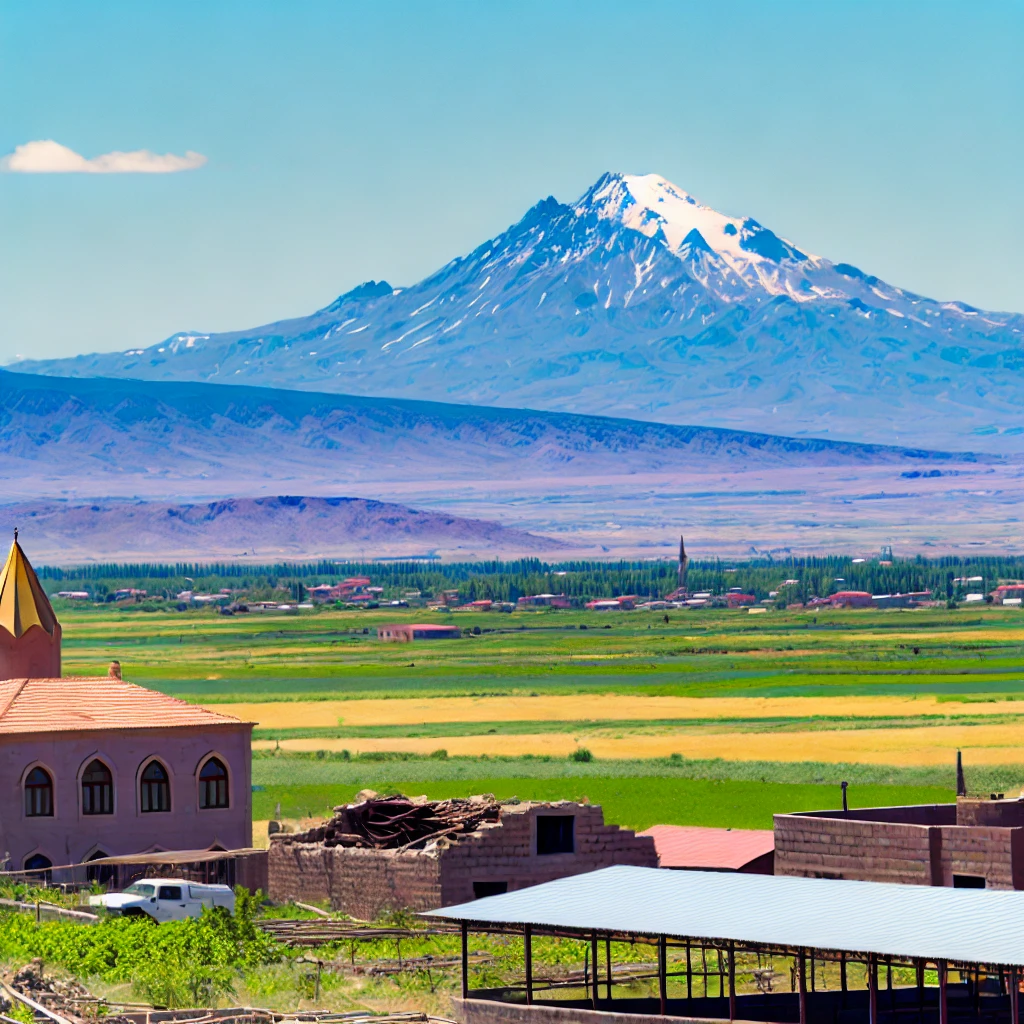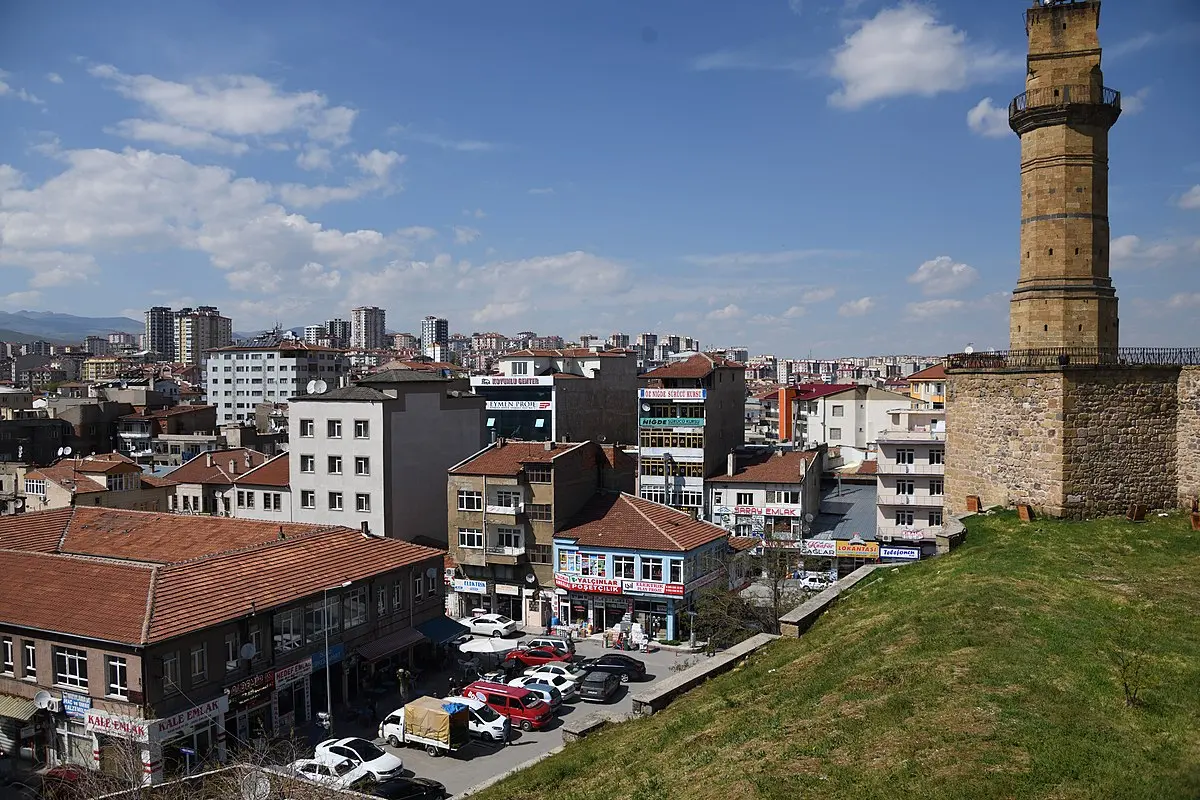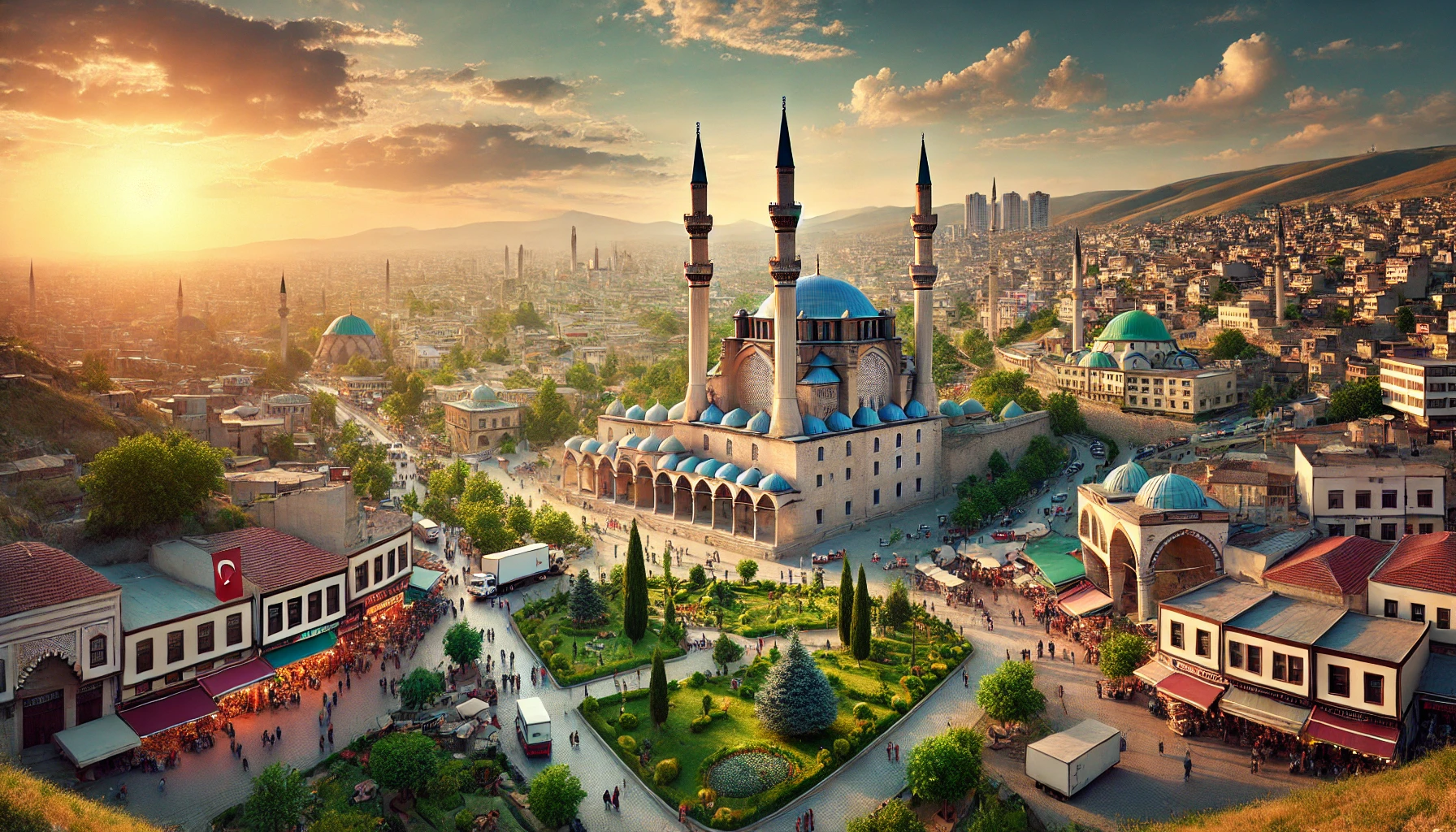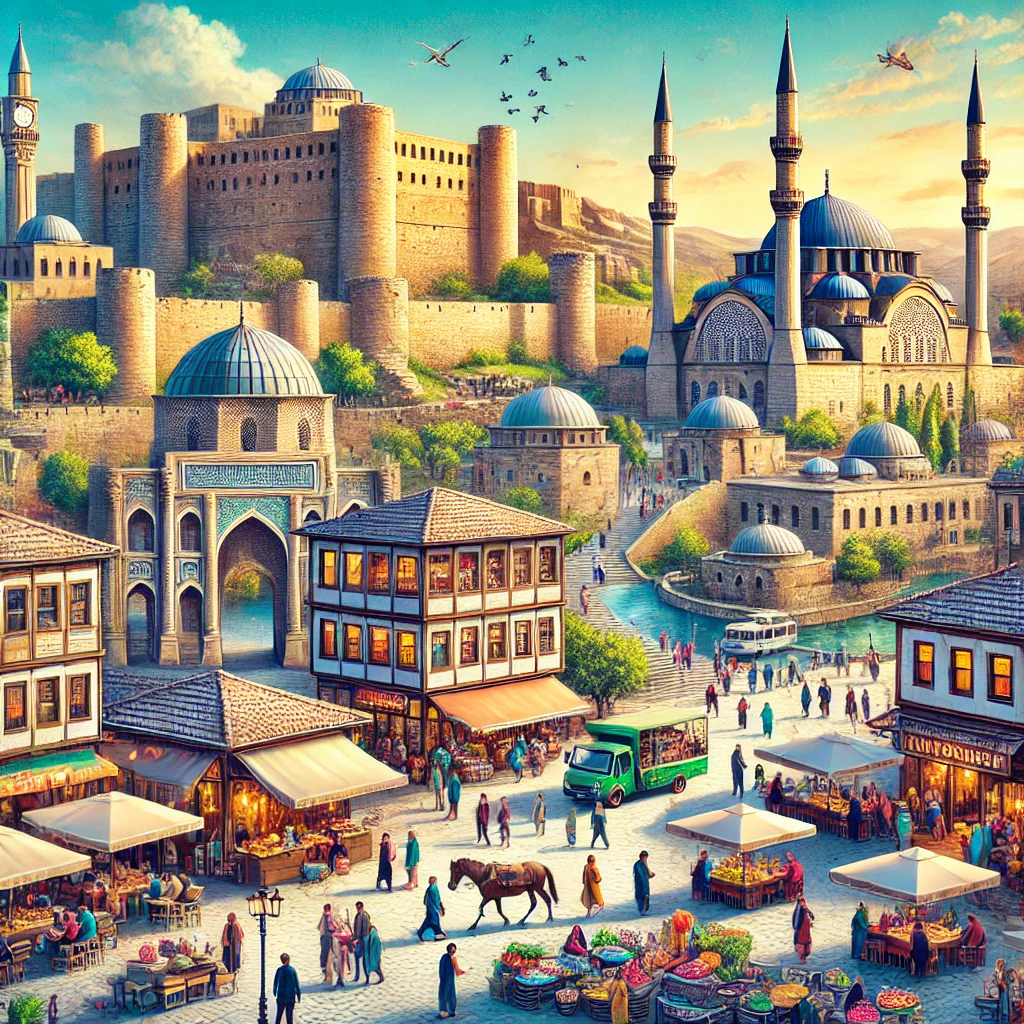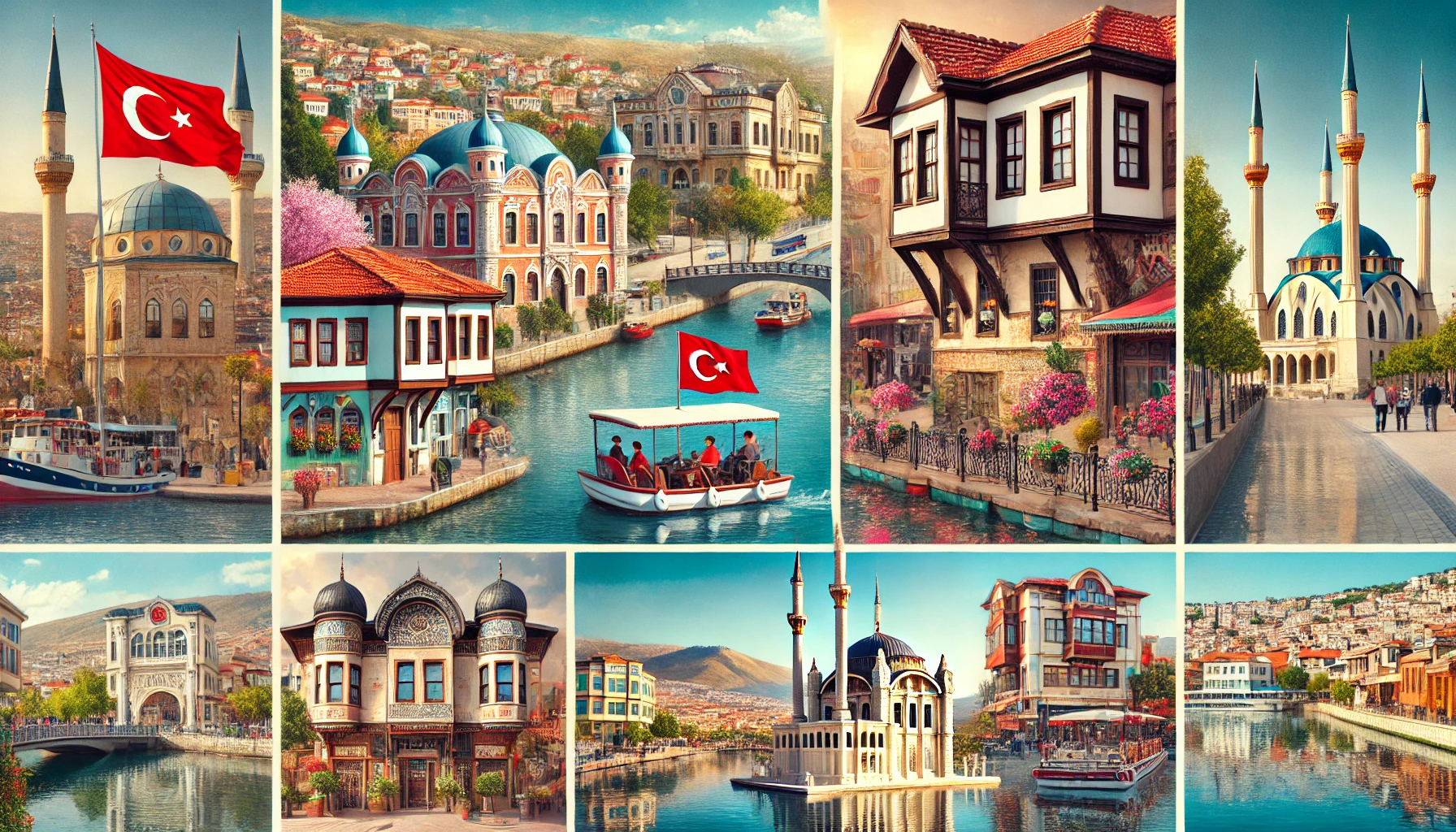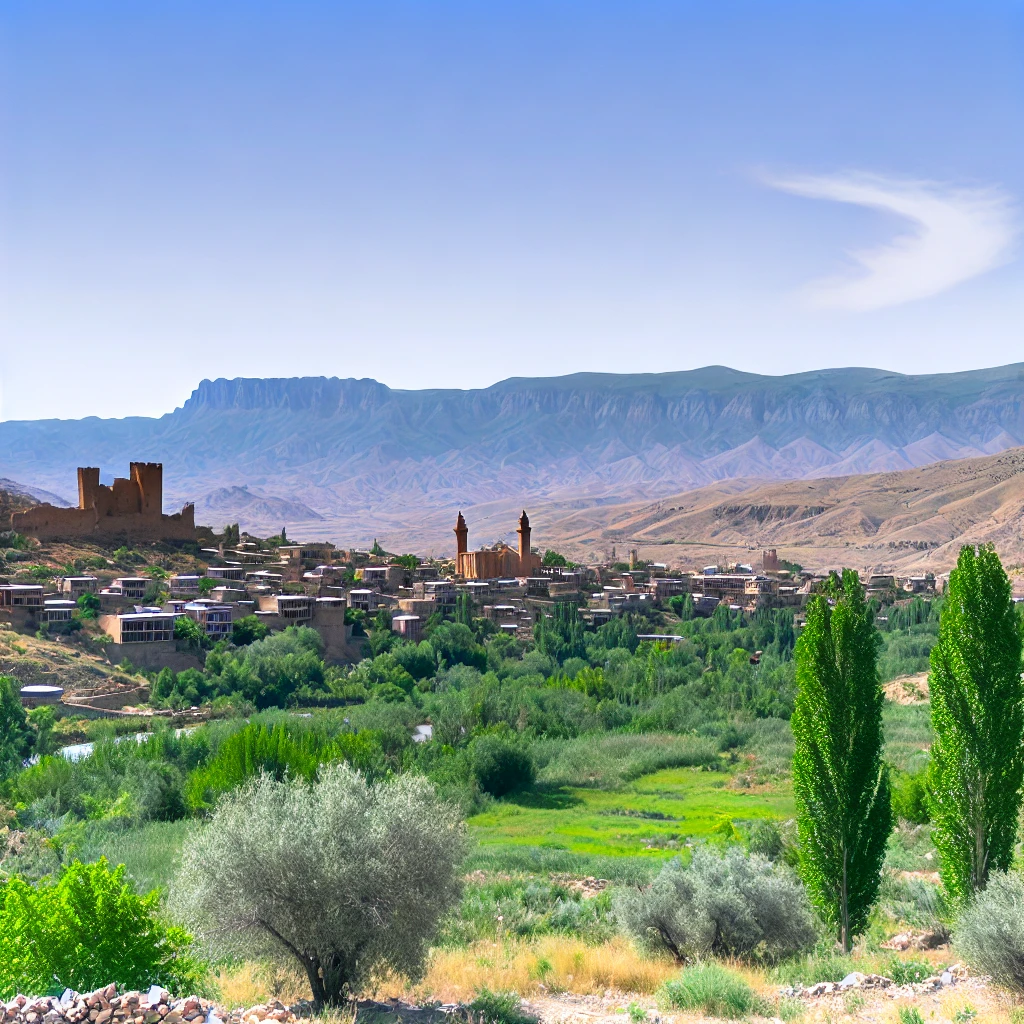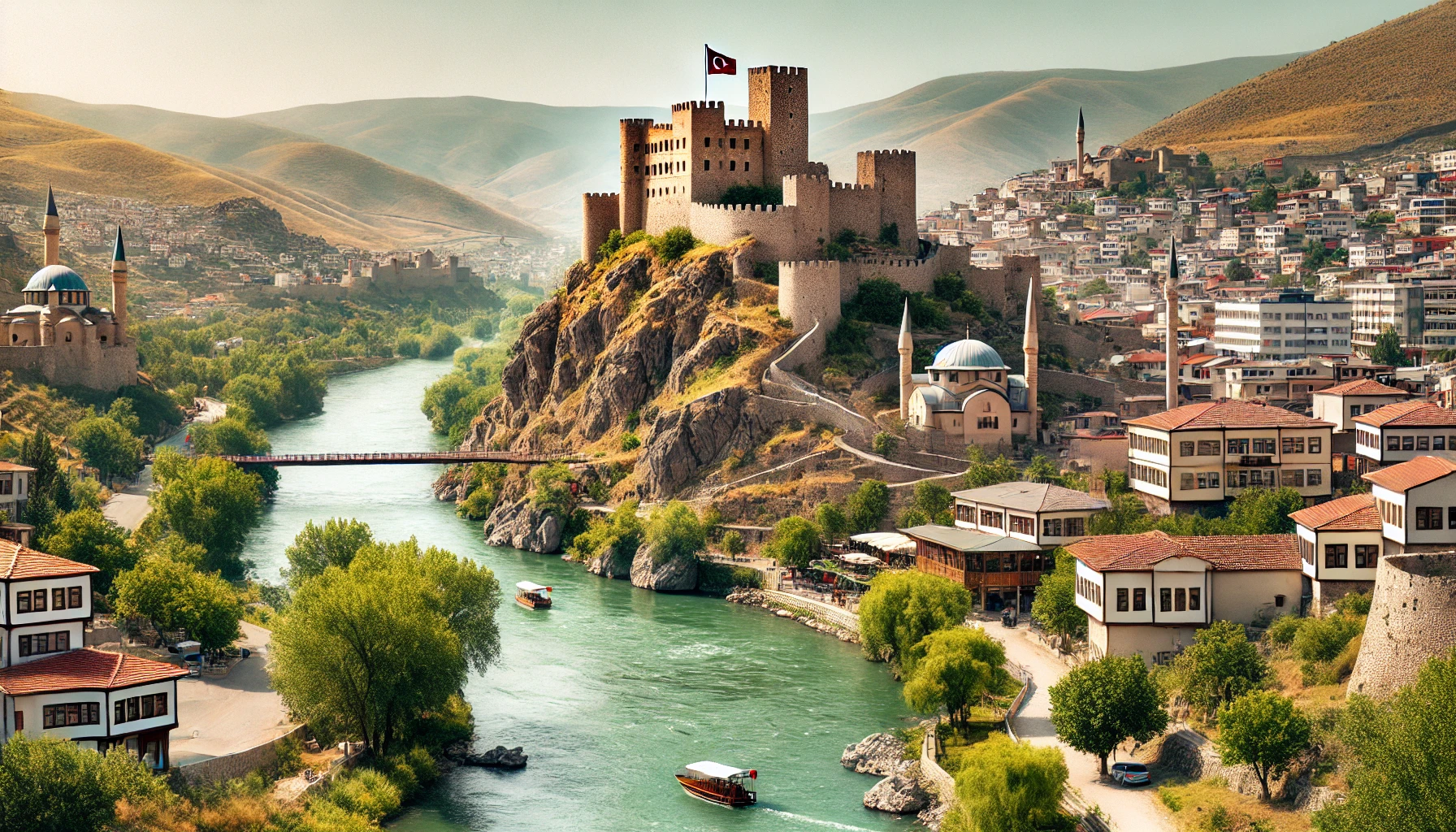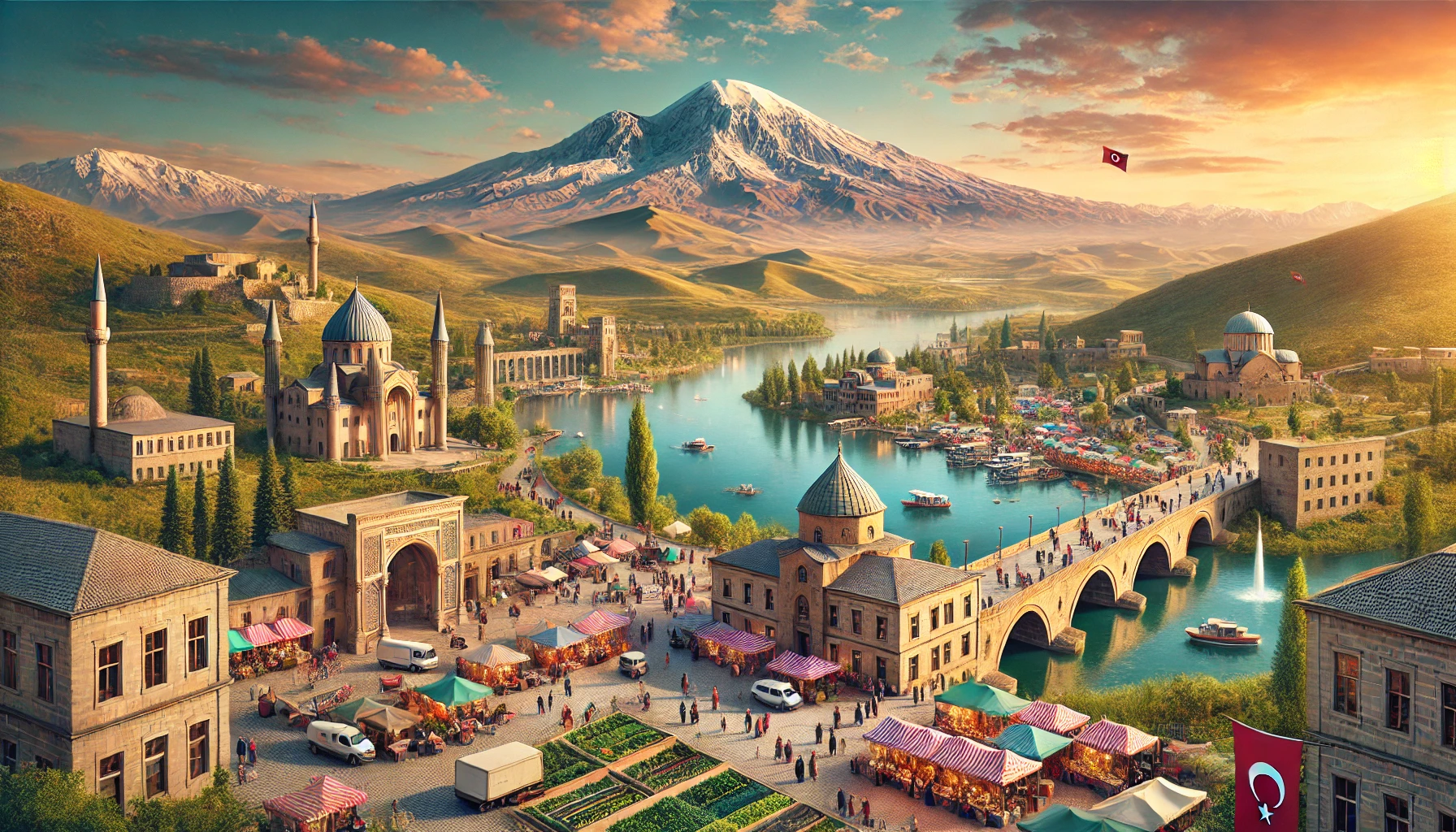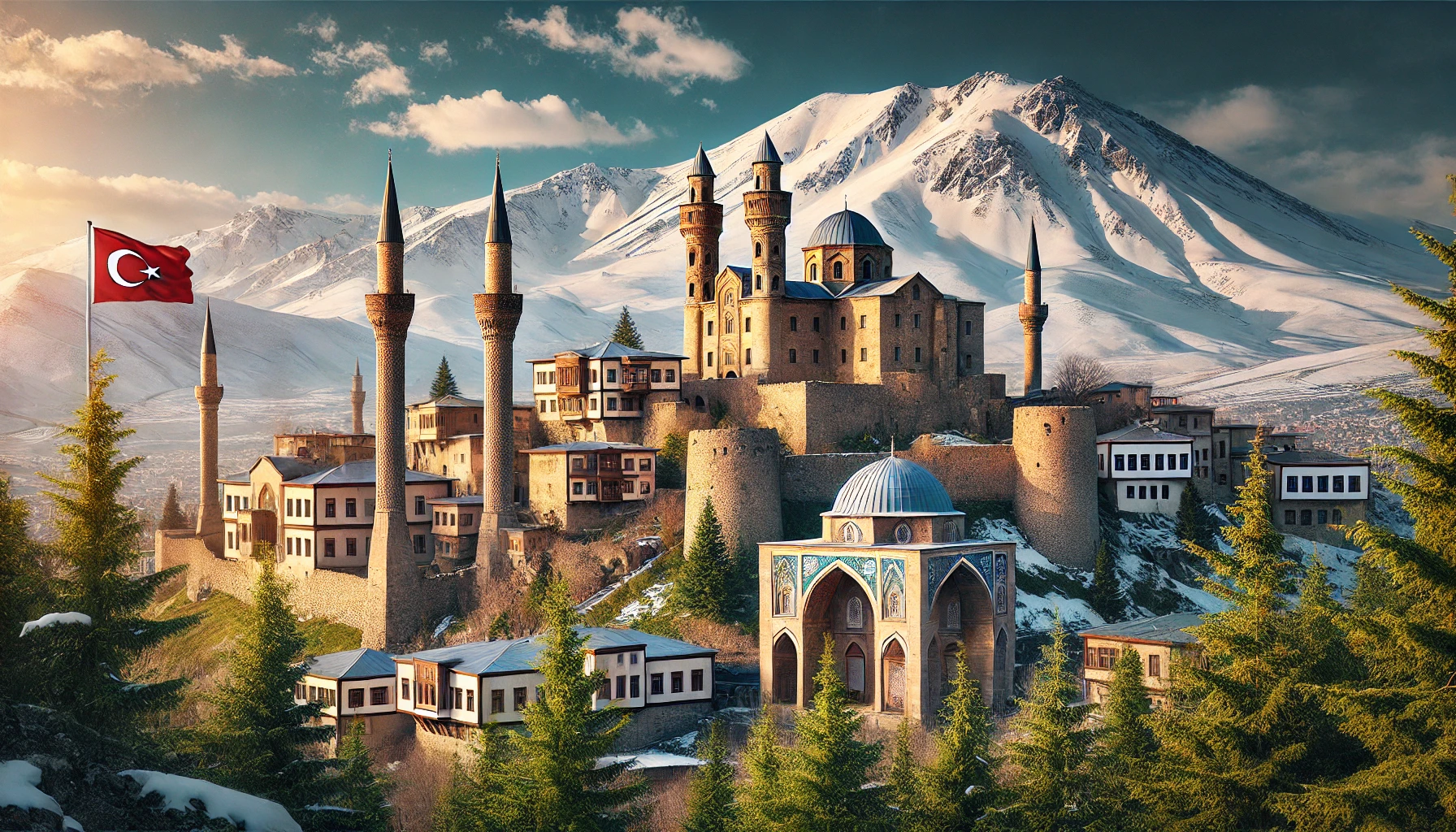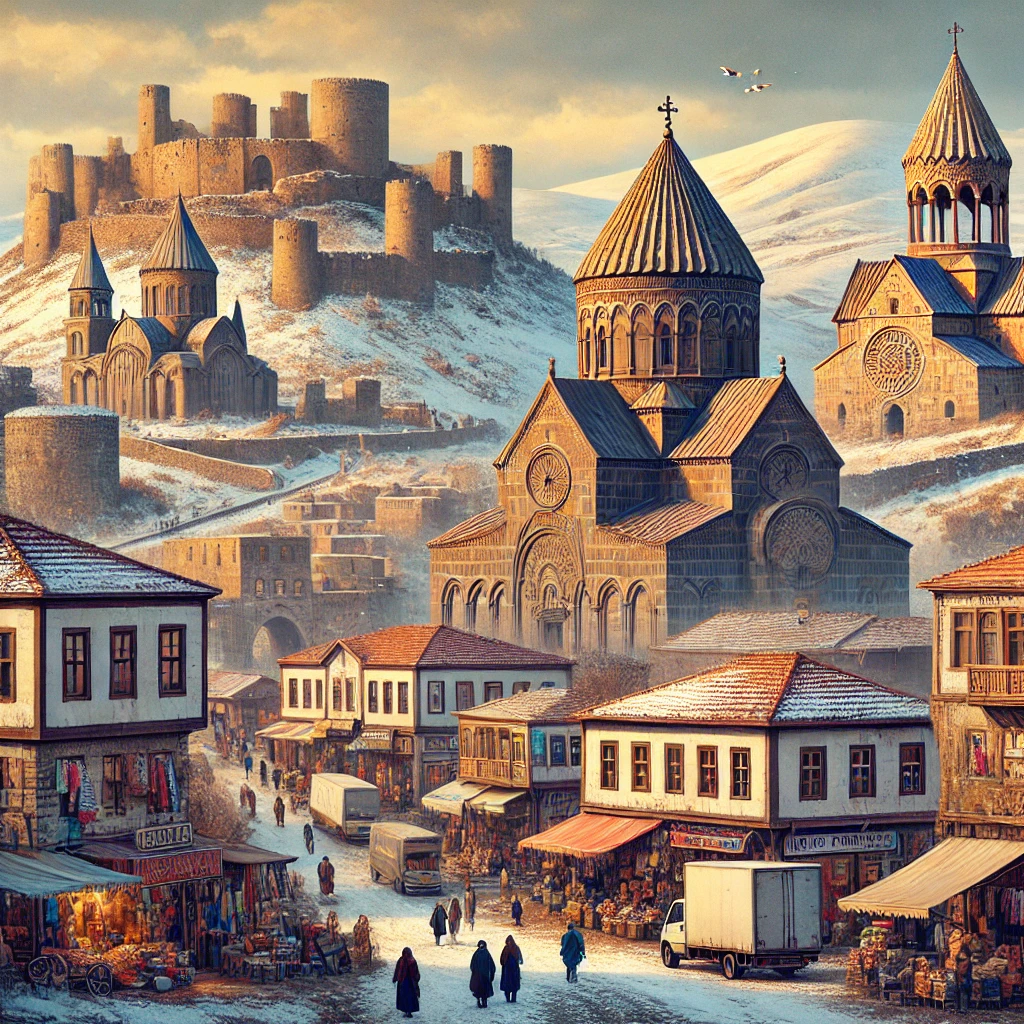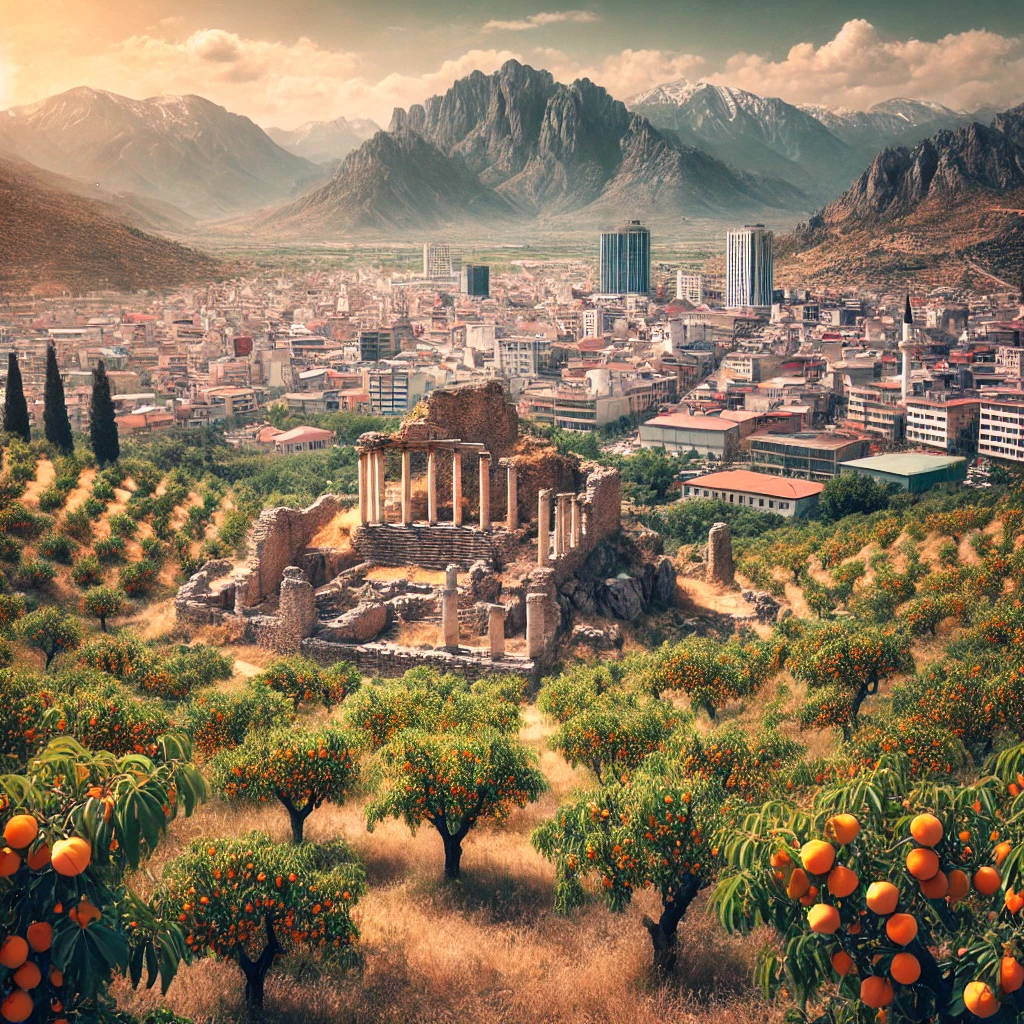Iğdır: A Jewel of Eastern Anatolia
Iğdır: Nestled in the Eastern Anatolia Region of Turkey, Iğdır is a captivating city that serves as the seat of Iğdır Province and Iğdır District. With its rich history, diverse culture, and stunning natural landscapes, Iğdır offers an array of experiences for travel enthusiasts. This comprehensive guide will take you through the various facets of Iğdır, from its ancient roots to its modern-day charm.
Historical Overview
Ancient and Medieval History
Iğdır, known as Tsolakert during the Middle Ages, has a storied past that dates back centuries. The Spanish traveler Ruy González de Clavijo documented his visit to the region in the early 15th century, describing a castle called Egida at the foot of Mount Ararat. The medieval settlement, now believed to be at Taşburun, reveals ruins of houses, a church, and fortifications unearthed by Russian excavations in the late 19th century. Following the Russo-Persian War of 1826-1828, Iğdır was ceded to the Russian Empire, marking a significant shift in its governance.
Modern History
Under Russian rule, Iğdır flourished with the establishment of schools and churches. However, the turmoil of the early 20th century saw the area changing hands multiple times, from Ottoman to Armenian control, before finally becoming part of the Republic of Turkey after the 1921 Treaty of Kars. The city’s modern era began in earnest in 1992 when it became the seat of the newly formed Iğdır Province.
Government and Administration
In the municipal elections of March 2019, Yaşar Akkuş from the Peoples’ Democratic Party (HDP) was elected mayor. However, he was dismissed due to terror-related investigations on 15 May 2020, and Enver Ünlü, the Governor of the province, was appointed as a trustee for the municipality on the same day.
Geography and Climate
Geographic Location
Situated on a plain at a lower altitude than most of Turkey’s eastern provinces, Iğdır enjoys a unique geographic position. The city’s fertile land supports diverse agricultural production, including apples, tomatoes, cucumbers, peaches, pears, sugar beets, watermelons, and melons. Cotton and apricots, however, are the most renowned produce of Iğdır.
Climate
Iğdır has a continental semi-arid climate, characterized by hot, dry summers and cold, snowy winters. As the driest city in Turkey, Iğdır averages 261 mm of precipitation annually. This climate significantly influences the agricultural and daily life of the city’s residents.
Health and Environmental Concerns
Air Pollution
Air pollution is a chronic issue in Iğdır, primarily due to the burning of coal. In 2021, Iğdır was labeled as Europe’s most polluted city, highlighting the urgent need for environmental reforms.
Armenian Nuclear Power Plant
Another significant health risk for Iğdır arises from the Armenian Nuclear Power Plant in Metsamor, located near the Turkish border. Research indicates that the plant’s operations have led to an increase in cancer cases in the region, raising concerns among MPs and health specialists.
Architectural and Cultural Heritage
Historical Sites
Iğdır boasts several historical sites, including the ruins of the medieval city of Surmari near the village of Sürmeli, featuring surviving walls dating back to 1224. Another notable structure is the restored 13th-century Armenian caravanserai known as the Caravanserai of Zor.
Iğdır Genocide Memorial and Museum
The Iğdır Genocide Memorial and Museum, opened in 1999, commemorates the massacres and persecution of Armenians in the region during World War I and the Turkish-Armenian War. The memorial serves as a reminder of the region’s tumultuous past.
Cultural Insights
Cuisine
Iğdır’s cuisine reflects the larger culture of Turkey, with agricultural prosperity contributing to a vibrant food scene. The most famous dish is bozbaş, a flavorful meat stew enjoyed by locals and visitors alike.
Festivals and Traditions
Iğdır’s cultural life is enriched by its festivals and traditional practices, which celebrate the city’s agricultural heritage and diverse population.
Economy and Development
Agricultural and Commercial Activities
The main economic activities in Iğdır revolve around the commerce of agricultural and animal products. Despite its strategic location between Kars and Ağrı, the closed border gate with Armenia and lack of direct access to Iran limit some economic possibilities.
Tourism Potential
About 70% of Mount Ararat’s area lies within Iğdır’s borders, offering significant tourism potential. However, investments in tourism development for Mount Ararat are directed towards Ağrı Municipality, highlighting an area for potential growth in Iğdır.
Demographics
Population Composition
According to historical records, Iğdır has been home to a mix of Azerbaijanis, Armenians, and Kurds. Today, the city’s population reflects this diverse heritage, contributing to its rich cultural tapestry.
Transportation
Road and Air Connectivity
Iğdır is well-connected by road, with Turkish state route D.080 and European route E99 passing through the city. Iğdır Airport, opened in 2012, provides internal flights to Istanbul and Ankara, enhancing the city’s accessibility.
Future Rail Transport
Currently, there is no rail transport to Iğdır, but the planned Nakhchivan-Kars railway promises to improve connectivity once completed.
Conclusion
Iğdır, with its blend of historical significance, cultural richness, and natural beauty, is a city that beckons travelers to explore its unique offerings. From its ancient roots and architectural wonders to its vibrant agricultural life and evolving economic landscape, Iğdır stands as a testament to the enduring spirit of the Eastern Anatolia Region. Whether you’re a history buff, a nature lover, or a cultural enthusiast, Iğdır has something to offer, making it a must-visit destination in Turkey.
Embark on your journey to Iğdır and discover the myriad experiences this fascinating city has in store. From the majestic views of Mount Ararat to the bustling markets filled with local produce, Iğdır promises an unforgettable adventure for every traveler.
Latest Update: Aug 4, 2024
Your Content Goes Here
TAGS: Armenian Tsolakert, Eastern Anatolia, Iğdır, Iğdır agriculture, Iğdır architecture, Iğdır climate, Iğdır cuisine, Iğdır culture, Iğdır demographics, Iğdır economy, Iğdır Genocide Memorial, Iğdır history, Iğdır tourism, Iğdır transportation, Mount Ararat, Turkey
The Region of Iğdır
A brief summary of the key points in this article.
Latest Travel Guides
Weather Today in Iğdır, Turkey
Location: Iğdır
Temperature: -7.45°C
Condition: Scattered clouds

